
Animal Farm is a satirical allegorical novella, in the form of a beast fable, by George Orwell, first published in England on 17 August 1945. It tells the story of a group of anthropomorphic farm animals who rebel against their human farmer, hoping to create a society where the animals can be equal, free, and happy. Ultimately, the rebellion is betrayed, and under the dictatorship of a pig named Napoleon, the farm ends up in a state far worse than before.
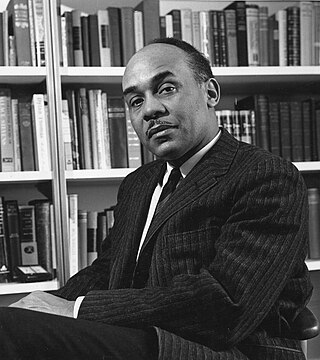
Ralph Ellison was an American writer, literary critic, and scholar best known for his novel Invisible Man, which won the National Book Award in 1953.

Homage to Catalonia is a 1938 memoir by English writer George Orwell, in which he accounts his personal experiences and observations while fighting in the Spanish Civil War.

John Roderigo Dos Passos was an American novelist, most notable for his U.S.A. trilogy.

Emmanuel Bernard Le Roy Ladurie was a French historian whose work was mainly focused upon Languedoc in the Ancien Régime, particularly the history of the peasantry. One of the leading historians of France, Le Roy Ladurie has been called the "standard-bearer" of the third generation of the Annales school and the "rock star of the medievalists", noted for his work in social history.

Darkness at Noon is a novel by Hungarian-born novelist Arthur Koestler, first published in 1940. His best known work, it is the tale of Rubashov, an Old Bolshevik who is arrested, imprisoned, and tried for treason against the government that he helped to create.

Arrival and Departure (1943) is the third novel of Arthur Koestler's trilogy concerning the conflict between morality and expedience. The first volume, The Gladiators, is about the subversion of the Spartacus revolt, and the second, Darkness at Noon, is the celebrated novel about the Soviet show trials. Arrival and Departure was Koestler's first full-length work in English, The Gladiators and Darkness at Noon having originally been written in German. It is often considered to be the weakest of the three.
The history of communism encompasses a wide variety of ideologies and political movements sharing the core principles of common ownership of wealth, economic enterprise, and property. Most modern forms of communism are grounded at least nominally in Marxism, a theory and method conceived by Karl Marx and Friedrich Engels during the 19th century. Marxism subsequently gained a widespread following across much of Europe, and throughout the late 1800s its militant supporters were instrumental in a number of unsuccessful revolutions on that continent. During the same era, there was also a proliferation of communist parties which rejected armed revolution, but embraced the Marxist ideal of collective property and a classless society.
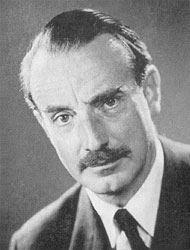
James Hadley Chase was an English writer. While his birth name was René Lodge Brabazon Raymond, he was well known by his various pseudonyms, including James Hadley Chase, James L. Docherty, Raymond Marshall, R. Raymond, and Ambrose Grant. He was one of the best known thriller writers of all time. The canon of Chase, comprising 90 titles, earned him a reputation as the king of thriller writers in Europe. He was also one of the internationally best-selling authors, and to date 50 of his books have been made into films.
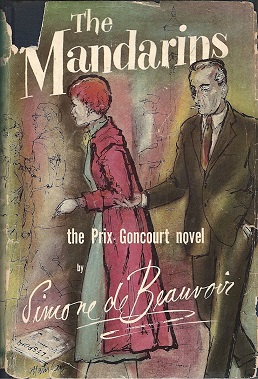
The Mandarins is a 1954 roman à clef by Simone de Beauvoir, for which she won the Prix Goncourt, awarded to the best and most imaginative prose work of the year, in 1954. The Mandarins was first published in English in 1956.
Theodore H. Draper was an American historian and political writer. Draper is best known for the 14 books he completed during his life, including work regarded as seminal on the formative period of the American Communist Party, the Cuban Revolution, and the Iran–Contra Affair. Draper was a fellow of the American Academy of Arts and Sciences and the 1990 recipient of the Herbert Feis Award for Nonacademically Affiliated Historians from the American Historical Association.
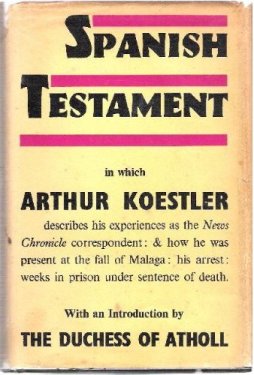
Spanish Testament is a 1937 book by Arthur Koestler, describing his experiences during the Spanish Civil War. Part II of the book was subsequently published on its own, with minor modifications, under the title Dialogue with Death. Koestler made three trips to Spain during the civil war; the third time he was captured, sentenced to death and imprisoned by the Nationalist forces of General Franco. Koestler was working as an espionage agent on behalf of the Comintern and as an agent of the Second Spanish Republic's official news agency, using for cover accreditation to the British daily News Chronicle.

Dialogue with Death, a book by Arthur Koestler, was originally published in 1937 as a section of his book Spanish Testament, in which he describes his experiences during the Spanish Civil War. Part II of the book was subsequently decoupled from Spanish Testament and, with minor modifications, published on its own under the title Dialogue with Death. The book describes Koestler’s prison experiences under sentence of death. The book was written in the late autumn of 1937 immediately after his release from prison, when the events were still vivid in his memory.

Franz Borkenau was an Austrian writer. Borkenau was born in Vienna, Austria, the son of a civil servant. As a university student in Leipzig, his main interests were Marxism and psychoanalysis. Borkenau is known as one of the pioneers of the totalitarianism theory.

Margarete Buber-Neumann was a German writer. As a senior Communist Party of Germany member and Gulag survivor, which turned her into a staunch anti-communist, she wrote the famous memoir Under Two Dictators. It begins with her arrest in Moscow during Joseph Stalin's Great Purge, followed by her imprisonment as a political prisoner in both the Soviet Gulag and the Nazi concentration camp system, after being handed over by the NKVD to the Gestapo during World War II. She was also known for having testified in the so-called "trial of the century" about the Kravchenko Affair in France. In 1980, Buber-Neumann was awarded the Great Cross of Merit of the Federal Republic of Germany.

Valentine Ackland was an English poet, and life partner of novelist Sylvia Townsend Warner. Their relationship was strained by Ackland’s infidelities and alcoholism, but survived for nearly forty years. Both were closely involved with communism, remaining under continued scrutiny by the authorities. Ackland’s poetry did not become widely noticed until after her death, when her reflective, confessional style was more in vogue, and left-wing writers of the 1930s had become a popular topic.
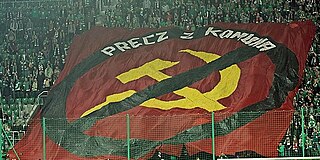
Anti-communism is political and ideological opposition to communist beliefs, groups, and individuals. Organized anti-communism developed after the 1917 October Revolution in the Russian Empire, and it reached global dimensions during the Cold War, when the United States and the Soviet Union engaged in an intense rivalry. Anti-communism has been an element of many movements and different political positions across the political spectrum, including anarchism, centrism, conservatism, fascism, liberalism, nationalism, social democracy, socialism, leftism, and libertarianism, as well as broad movements resisting communist governance. Anti-communism has also been expressed by several religious groups, and in art and literature.
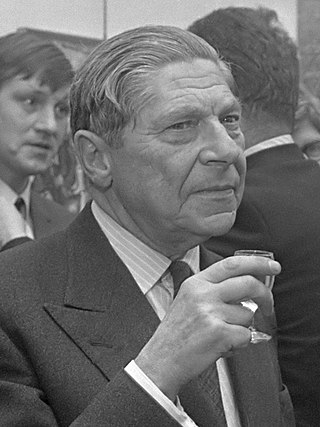
Arthur Koestler was an Austro-Hungarian-born author and journalist. Koestler was born in Budapest, and apart from his early school years, was educated in Austria. In 1931, Koestler joined the Communist Party of Germany, but he resigned in 1938 after becoming disillusioned with Stalinism.
Anthony Rhodes was a British writer of memoirs, novels, travelogues, reviews and histories.

Yearbook on International Communist Affairs is a series of 25 books published annually between 1966 and 1991, which chronicle the activities of communist parties throughout the world. It was published by the Hoover Institution Press, Stanford University. Richard F. Staar served as its editor in chief for most of its editions.
















